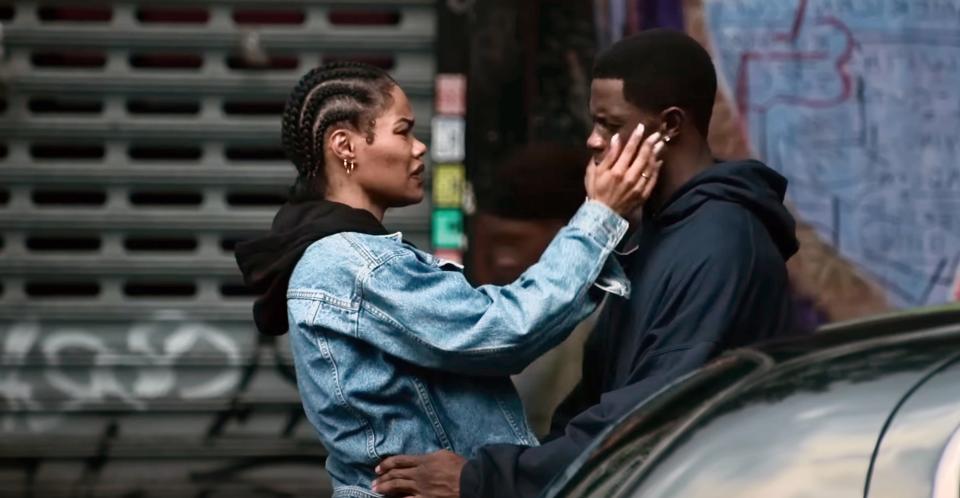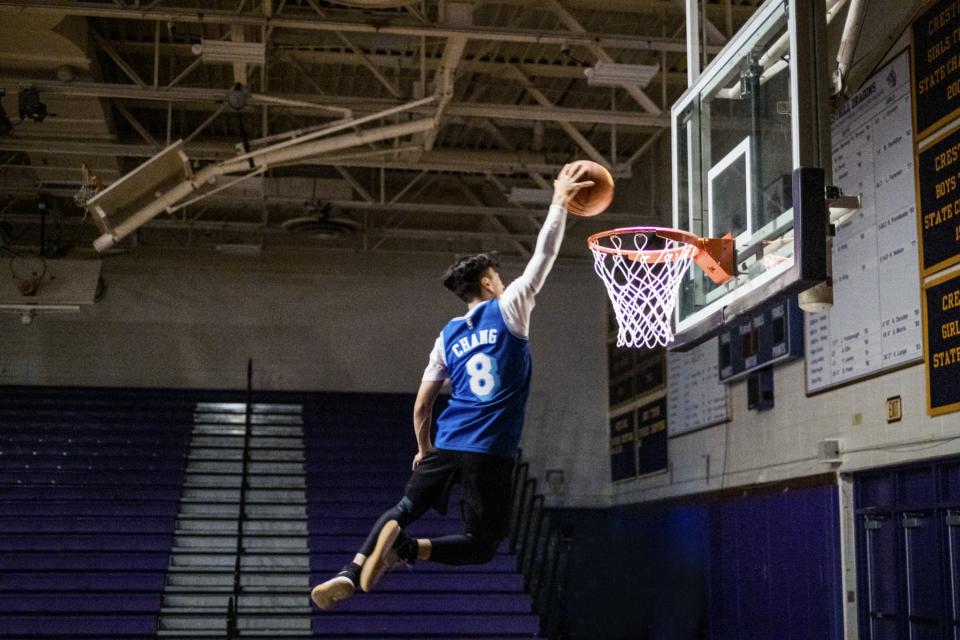Hillman Grad Founders Lena Waithe And Rishi Rajani Walk The Walk To Make Inclusion A Reality: “We Have An Incredible Success Rate With First-Time Filmmakers”

Reflecting on her career, Lena Waithe says, “I think about legacy a lot.” The writer-producer-actor, whose body of work includes creating Showtime drama The Chi and BET’s Twenties, has been on a steady upward trajectory since winning a primetime Emmy Award in 2017 for outstanding writing on Netflix’s Master of None. But for Waithe, success raised questions about where she was headed. “I didn’t know what I was actually trying to build. I wanted to have real agency over my career, but it was also not just about me, it’s about who I can work with.”
Together with Rishi Rajani, a studio exec who honed his skills at 20th Century Fox, UTA, Paradigm, and Studio 8, Waithe has created a multi-platform entertainment company that accomplishes both. At Hillman Grad Productions, Waithe and Rishi develop projects that often go against the industry grain, while also hiring up-and-coming talent from BIPOC and other marginalized communities that they can shepherd from obscurity to success.
More from Deadline
Hillman Grad started from a place of defiance of a system that favors IP over originality. “Lena had been told ‘no’, on projects that she wanted to get off the ground, things that people didn’t believe in because of the marketplace,” says Rajani, who joined as CEO in 2018. “What I appreciated was that Lena wasn’t coming from a standpoint of, ‘How do we as a company make ourselves more marketable or appeal to the market?’ Lena has the experience of believing in a vision enough to make it happen.”

His excitement was compounded by an ability to nurture talent on the cusp of their big break. “Coming from the studio system, if someone had a great short film or even a great first feature, it was like, ‘That’s someone to keep an eye on.’ We ignore that,” says Rajani. “Lena was like, ‘Let’s figure it out. Give them an episode here. Put them in the writers’ room there. Let’s get them what they need to not be considered risky bets by the system we’re in.’”
At Hillman Grad, the producing arm focuses on teeing up smaller-budget films from directors, often first-timers, that they believe in. Additionally, Hillman Grad’s talent incubator program Rising Voices, now in its fourth cycle, accepts 10 filmmakers and gives each $100,000 to make a short film that will screen at Tribeca Film Festival. The goal, on both sides, is to cultivate relationships that will be ongoing. “We’re constantly asking, ‘What can we do next together? What are the things that you need to make and how can we be the home for that?’’ says Rajani. “We have an incredible success rate with first-time filmmakers and it’s not an easy thing to do.”

Despite just six years under its belt, among them two years of Covid and one year of industry-halting strikes, the production company can already count the wins. A.V. Rockwell’s feature film debut A Thousand and One received the Grand Jury Prize in the U.S. Dramatic Competition at the 2023 Sundance Film Festival Awards and the Film Independent Spirit Award for best first feature. Radha Blank’s The 40-Year-Old Version was awarded best screenplay at the 2021 IFP Gotham Awards. The Broadway play Ain’t No Mo, on which Hillman Grad served as producer, was nominated for Best Play at the 2023 Tony Awards. Those are just the accolades. Filmmakers who have found a foothold in the industry through their mentorship include Chang Can Dunk creator Jingyi Shao (Disney+) and Being Mary Tyler Moore director James Adolphus (HBO).

Unlike most diversity programs, giving emerging filmmakers their best shot at success means not just placing them in jobs, but supporting them through the experience, like the three months Rajani spent on set with Shao. “We like to think of ourselves as the Seattle Grace of production companies,” says Waithe. “People think, ‘I made it. I got a movie or a TV show,’ and that’s really where it all begins. Part of our journey with these filmmakers is that their dream coming true can also be a nightmare some days.”
The company’s next phase is building out their own financing capacities, which would result in them having a greater stake in their content. “We need to be able to make $1.5 to $2.5 million bets on the people that we love and work with,” says Rajani. “We know there’s an audience that exists for them.” For now, being able to amplify their voices — be that in the form of directors, writers, actors or future studio execs — already feels impactful. “They are more of my legacy than the work that I put out,” says Waithe. “I’m pleased with whatever they do, whether they decide to go make movies, work at a studio, start their own production company — even if they decide to leave. That’s actually a success story, too, because at least they had a fair shot.”
Best of Deadline
Hollywood & Media Deaths In 2024: Photo Gallery & Obituaries
2024 Premiere Dates For New & Returning Series On Broadcast, Cable & Streaming
2024-25 Awards Season Calendar - Dates For Oscars, Tonys, Guilds, BAFTAs, Spirits & More
Sign up for Deadline's Newsletter. For the latest news, follow us on Facebook, Twitter, and Instagram.


